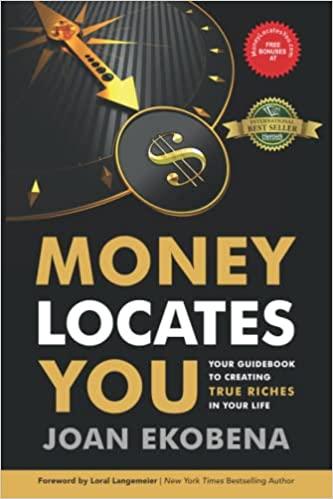Answered step by step
Verified Expert Solution
Question
1 Approved Answer
help students plan, budget, and be financially responsible after they graduate from university. Assumptions: 1 . You are a recent USask graduate and will be
help students plan, budget, and be financially responsible after they graduate from university.
Assumptions:
You are a recent USask graduate and will be working in a city that you plan to live in after graduation. You
will be working in a field of your choosing. Does not have to coincide with your Major but it must be
realistic Your start date is January You have to research your salary.
For simplicity, assume that your total income tax rate is This does not include CPP or EI you need
to research & estimate those numbers Analyze and present your earnings on a monthly basis.
You have $ as an opening balance in your chequing account on January
You will be living in a placeapartment of your choosing oneyear contract and rent is due on the st of
every month. You must pay rent with cashcheque You will need to research on the rent in the city you
plan to live in You will need to consider moving costs andor costs for dcor upon moving and settling into
your place. You may have a roommates if you wish. If you are going to have a roommate you can factor
this into your budget but it MUST be realistic. If basic utilities arent included in the rental contract, you
must estimate and include them. To help you get started your parents have paid your last months rental
deposit so you only have to worry about paying rent on a monthbymonth basis. Note: If you are planning
on living at home after school you must still include rent in your budget. The goal of this assignment is to
demonstrate what life will be like when you truly become financially independent
You have a credit limit of $ on your only credit card, with a month simple interest The minimum
monthly credit card payment is of the previous month's balance, interest included. You may pay the
balance in full each month, but you dont have to If you didnt use the card you owe nothing. You also dont
have to use the credit card at all its just an option.
Because you are fiercely independent you will not borrow money from friends or family. You may include
however, any realistic gifts you think you may receive for your birthday andor holidays you observe where
gifts may be given.
Acquire at least of the items in the box below. You can obtain these items in any legal way you choose,
except you cannot be given any of them. To support your purchase costs for these items, please provide
a calculationprice quote or onlineprinted ad supporting Kijiji Facebook Marketplace, etc. your
budgetedproposed purchase price, separately in your project. Hyperlinks will not be accepted as
support. If you already own many of the items below, you need to determine at least items that you will
need to purchase during the budget period as a result of moving into your own place and starting your life
and include those purchases in your budget.
Casual Clothes
and Shoes
Couch or Comfy
Chair TV Work Clothing and
Shoes
Cleaning Supplies
and Vacuum
Bed Frame, Box
Spring and
Mattress
Kitchen Table
and Chairs
Computer and Desk
or Laptop
Dishes, Cutlery,
Pots and Pans
Chest of Drawers
or Desk
Also include the following items in your monthly budget:
a Phone bills.
b Amazon PrimeCableNetflix and Internet if not already included with rent or utilities above.
c Food: Please do not use any online estimatesfood guides to come up with your budgeted monthly
food expenditures. Use your own current food costs and extrapolate ie you may eat more or more
expensive food once you have a job. You may dine out more often than you do now.
d Entertainment: Consider a wide variety of entertainment, including movies, sporting events, travel.....
e Insurance: Tenants, health, other as you deem appropriate
f If you choose not to have a car, budget for other modes of transportation transit pass, Uber, Taxis,
etc.
g Medical Expenses: Consider prescriptions and copays for doctor visits, chiropractor, massage,
physio, etc.
h If you have student loans, include a reasonable monthly repayment based on your best estimate,
assuming you will be paying them immediately. If you do not have student loans, include this as
$ so I know you have not forgotten it
i Emergency fund you decide how much to maintain
j Savings you decide what for. Eg vacation, Christmas, large purchase, etc.
k Retirement Contributions. These are separate from savings, since they are for the distant future.
l Charitable contributions. You have discretion on the amount and frequency, but consider them. If
you choose not to make charitable contributions, then indicate that. I would otherwise think you
had omitted it unintentionally.
m Gifts for others. You have discretion on the amount and frequency, but consider them.
If you dont want to spend money on a particular item listed above eg savings you must include it as
$ so I know you have no
Step by Step Solution
There are 3 Steps involved in it
Step: 1

Get Instant Access to Expert-Tailored Solutions
See step-by-step solutions with expert insights and AI powered tools for academic success
Step: 2

Step: 3

Ace Your Homework with AI
Get the answers you need in no time with our AI-driven, step-by-step assistance
Get Started


